- Home
- Upcoming #SLEEPON APP 3.0
- Upcoming #SLEEPON APP 3.0 Feature Sharing # HRV
Upcoming #SLEEPON APP 3.0 Feature Sharing # HRV

What is HRV?
HRV, short for Heart Rate Variability, refers to the variation in the time intervals between heartbeats, representing the fluctuation of heart rate over time. While heart rate is commonly perceived as a fixed number, it actually fluctuates slightly under different circumstances. HRV measurement captures the patterns and extent of these fluctuations.
These variations are attributed to the regulatory effects of the autonomic nervous system, including the sympathetic and parasympathetic nervous systems. HRV serves as a vital physiological indicator, reflecting the body’s ability to adapt to internal and external stimuli. Higher HRV typically indicates greater flexibility of the autonomic nervous system, enabling adaptation to various situations, while lower HRV may suggest compromised autonomic function or the impact of external stressors.
HRV measurement can be conducted using specialized heart rate monitoring devices or smartwatches. Its applications span across various domains such as health management, sports training, psychological health assessment, and disease diagnosis. For instance, in sleep monitoring, HRV can assess sleep quality; in sports training, it guides training intensity and recovery; in psychological health assessment, it evaluates stress levels and emotional states.
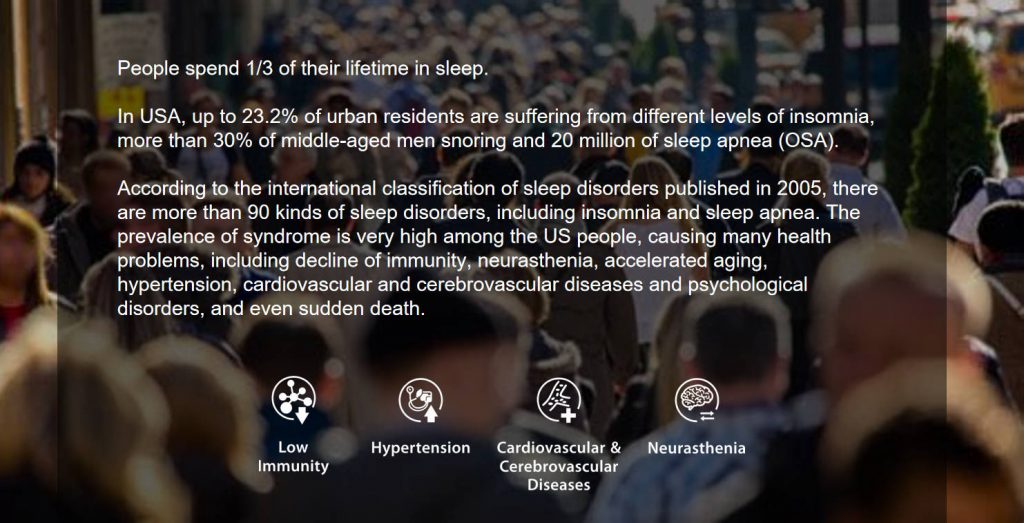
Why Measure HRV?
Detecting HRV (Heart Rate Variability) is crucial for several reasons:
- Assessing Autonomic Nervous System Function: HRV reflects the activity of the autonomic nervous system. By measuring HRV, we can evaluate the balance and regulatory capacity of the sympathetic and parasympathetic nervous systems, providing insights into how the body responds to stress and pressure.
- Monitoring Psychological and Physiological Health: HRV is closely related to both psychological and physiological health. Higher HRV is typically associated with better psychological well-being, lower levels of anxiety, and improved stress coping abilities. Conversely, lower HRV may be linked to psychological health issues, cardiovascular diseases, diabetes, and other chronic conditions.
- Assessing Sleep Quality: HRV can be used to assess sleep quality. Good sleep is often correlated with higher HRV, while individuals with poor sleep quality may exhibit lower HRV.
- Guiding Exercise and Training: HRV is widely used to guide exercise and training regimens. By monitoring HRV, we can understand the body’s recovery status and adaptability, helping to determine the intensity of training and recovery plans for athletes.
- Disease Prevention and Management: HRV can serve as an indicator for predicting the risk of cardiovascular diseases, diabetes, and other conditions. By monitoring HRV, potential health issues can be detected early, allowing for timely preventive measures to be taken.
In summary, detecting HRV provides vital health information that helps individuals better understand their physical condition, cope with stress, and take appropriate measures to maintain their health.
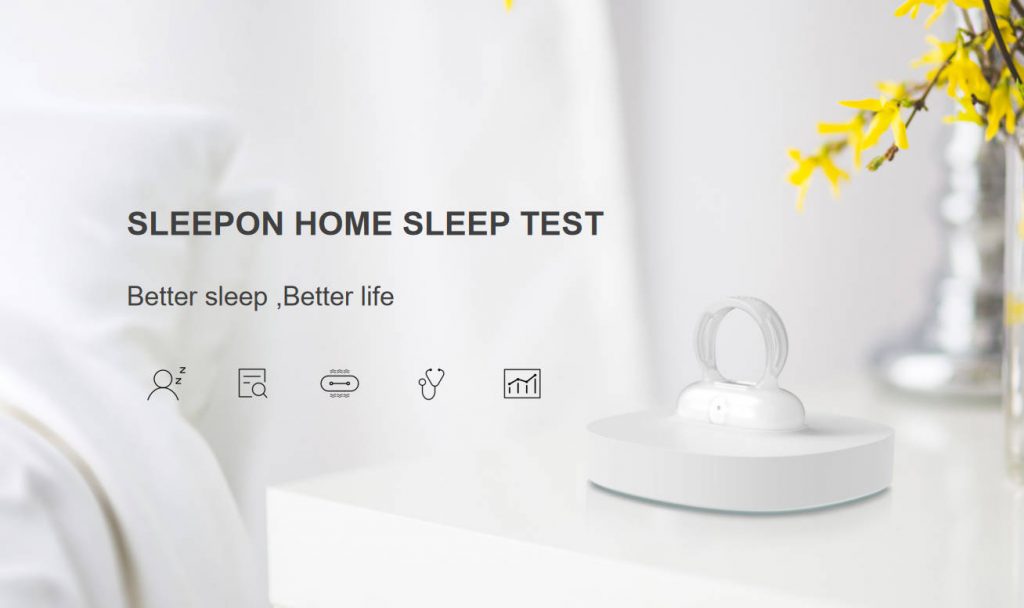
How to Measure HRV
HRV (Heart Rate Variability) is typically detected through several methods:
- Heart Rate Monitoring Devices: Specifically designed devices for monitoring heart rate and HRV, such as heart rate monitors, smartwatches, or wearable devices. These devices usually utilize optical sensors or electrodes to detect heart rate, and then calculate HRV using specific algorithms. Users simply need to wear the device, which continuously records heart rate and HRV data. Subsequently, this data can be analyzed and viewed through corresponding applications or software.
- HRV Instruments: Some professional devices are specifically designed for measuring HRV, such as electrocardiogram (ECG) machines or HRV analyzers. These devices typically provide more precise HRV measurements and are widely used in clinical settings, although they often require professional operation.
- HRV Applications: Some mobile applications can also be used for HRV detection, utilizing built-in sensors (such as cameras or fingerprint sensors) in smartphones to detect heart rate and calculate HRV. These applications typically offer simple HRV measurement functions, suitable for general users to use at home or in daily life.
Regardless of the method chosen, it’s important to maintain relaxation and calmness during HRV detection, while avoiding factors that may interfere with heart rate. Additionally, it’s crucial to maintain a certain duration of data collection to obtain accurate HRV measurement results.
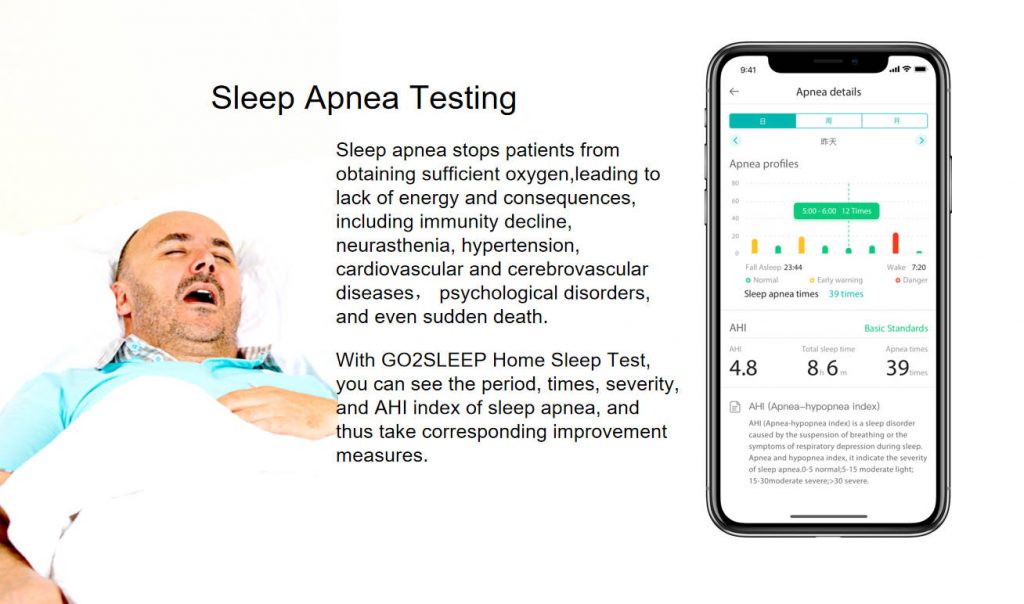
The Role of Go2sleep’s HRV Monitoring in the Field of Sleep
In the field of sleep, HRV (Heart Rate Variability) monitoring with Go2sleep serves significant purposes:
- Assessing Sleep Quality: HRV serves as one of the indicators for evaluating sleep quality. Good sleep quality is typically associated with higher HRV, while individuals with poorer sleep quality may exhibit lower HRV. Therefore, Go2sleep’s HRV monitoring function allows for an objective assessment of sleep quality, aiding individuals in understanding their sleep patterns.
- Identifying Sleep Disorders: HRV monitoring assists in identifying sleep disorders such as sleep apnea or sleep breathing disorders. These disorders may cause abnormalities in HRV patterns. Thus, Go2sleep’s HRV monitoring can help in early detection of sleep issues and timely intervention and treatment.
- Guiding Sleep Therapy: For individuals suffering from sleep disorders or sleep issues, Go2sleep’s HRV monitoring can guide sleep therapy. By monitoring HRV, treatment effectiveness can be assessed, allowing for adjustments to treatment plans to optimize outcomes concerning sleep quality and autonomic nervous system function.
- Researching the Relationship Between Sleep and Health: Go2sleep’s HRV monitoring contributes to researching the relationship between sleep and health. Analysis of HRV data allows for exploration of the impact of sleep on the autonomic nervous system, as well as correlations between sleep quality and indicators of psychological health, cardiovascular health, and other health parameters.
In summary, Go2sleep’s HRV monitoring in the field of sleep provides essential information, aiding in the assessment of sleep quality, identification of sleep issues, guidance of sleep therapy, and promotion of research on sleep and health.
Products
Company
Copyright © SLEEPON. All rights reserved.
SLEEPON keeps both Sleeponhealth and Sleepon.us due to the brand upgrading. We promise to provide the same products and service in both sites.

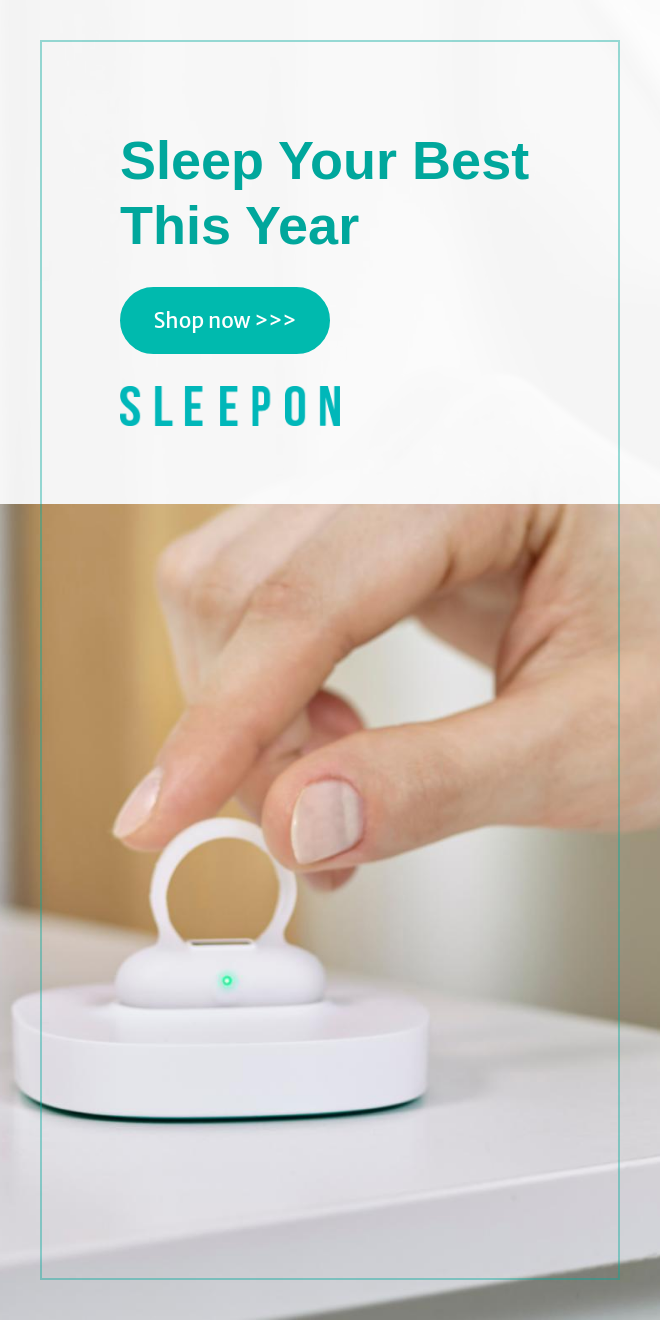
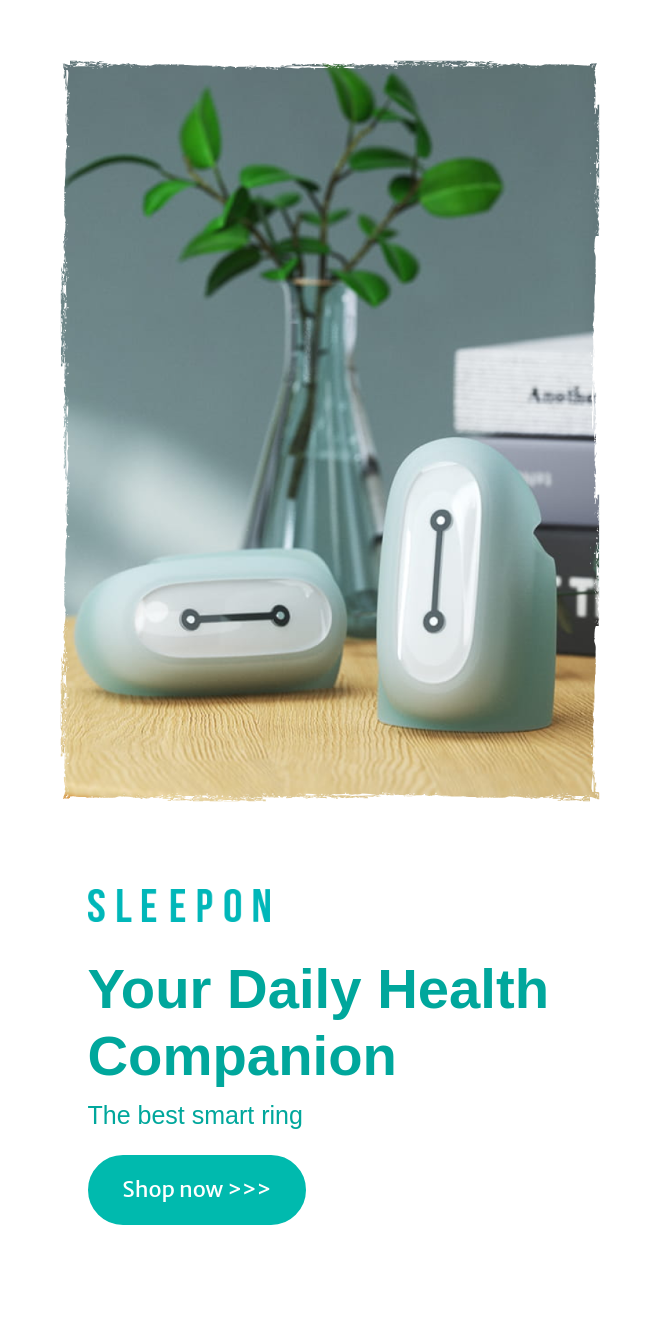


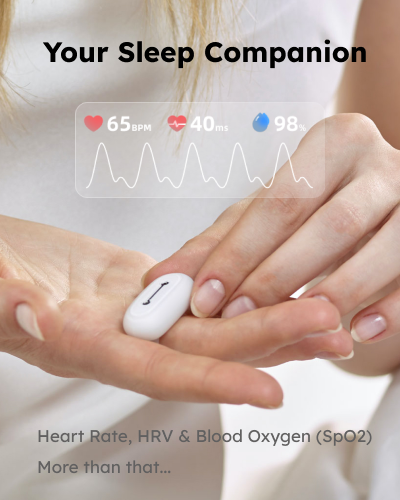





Leave a Reply